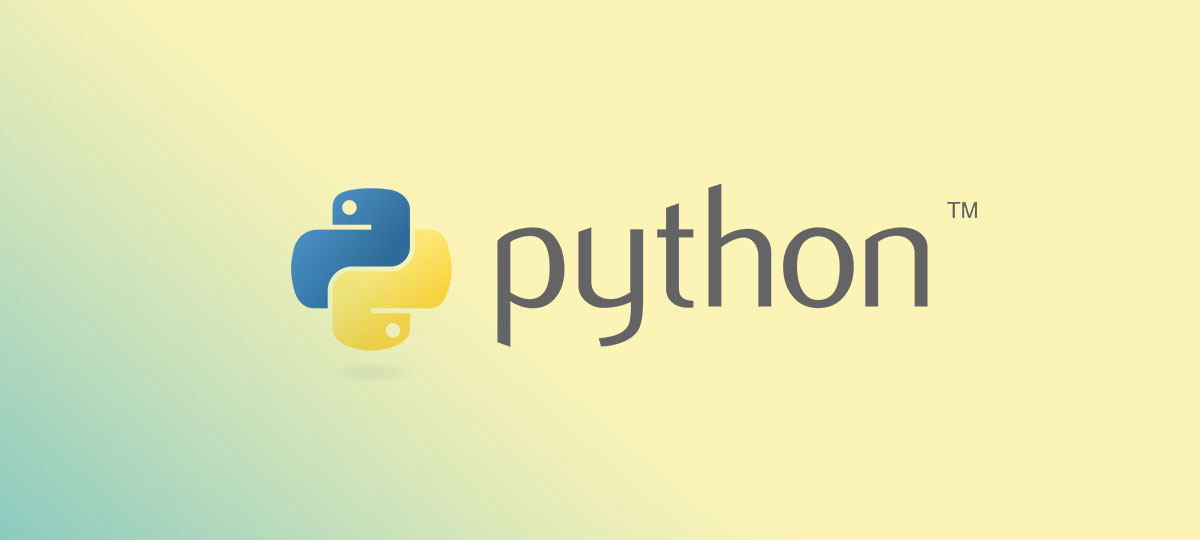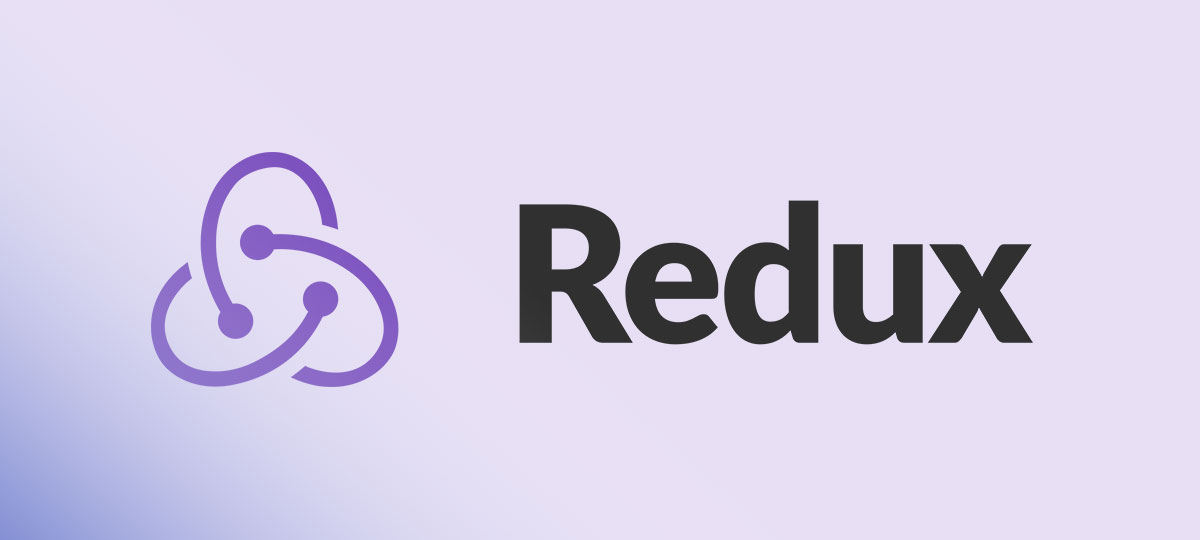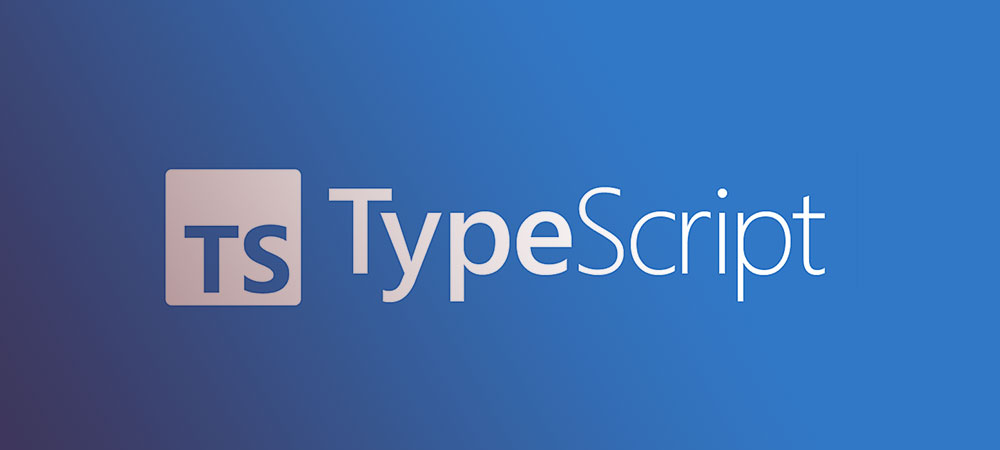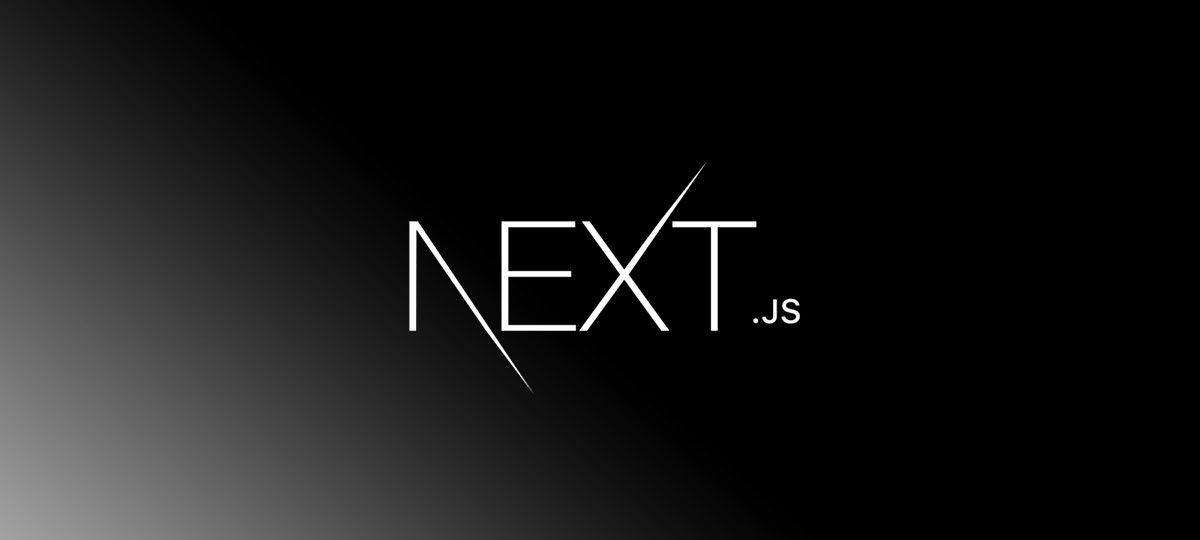Imagine cracking open a toolbox, seeking that one perfect tool, but what you find are dozens, each uniquely suited for a myriad of tasks.
Now, swap out tools for programming languages, and you’ve stepped into the vibrant world of Python alternatives.
Diverse as they are dynamic, these varied languages come with their own sets of rules, quiracies, and superpowers, tailored to specific needs that Python, for all its fame, might not best address.
By wading through this sea of scripting languages and coding paradigms, you’re not just expanding your toolkit; you’re aligning with the dynamic programming zeitgeist, where the right language can turn an okay project into a masterpiece.
In this deep dive, we unlock the potential of choices beyond Python, from the high-octane C++ engines driving performance-hungry applications to the elegant simplicity of Ruby on Rails for web artisans.
You’ll emerge from this read with insider knowledge of open-source languages, each holding the key to doors Python doesn’t open, ready to step into a broader world of coding possibilities.
Python alternatives
| Language | Typing Discipline | Main Use Cases | Syntax | Notable Features |
|---|---|---|---|---|
| Ruby | Dynamic | Web development, scripting | Elegant, expressive | Easy to read, Rails framework, strong focus on simplicity and productivity |
| JavaScript | Dynamic | Web development (front-end and back-end) | C-like, versatile | Ubiquitous in web browsers, Node.js for server-side, large ecosystem |
| Java | Static | Enterprise, Android app development | Verbose, C-like | Platform-independent (JVM), robust standard libraries, strong in concurrency |
| Go | Static, inferred | System programming, Cloud services | Simplistic | Simple concurrency model (Goroutines), fast compilation, static linking, garbage collected |
| Swift | Static, inferred | iOS/macOS app development | Modern, clean | Developed by Apple, interoperable with Objective-C, focus on safety and performance |
| Kotlin | Static, inferred | Android app development, web development | Concise, expressive | Fully interoperable with Java, null safety, coroutines for asynchronous programming |
| R | Dynamic | Data analysis, statistical computing | Domain-specific | Comprehensive statistics libraries, strong graphic capabilities |
| Scala | Static, inferred | Web services, parallel batch processing | Brief, expressive | Runs on JVM, functional programming features, compatible with Java libraries |
| C# | Static | Desktop apps, web services, game development | C-like | Part of .NET framework, LINQ, strong typing system, good toolchain |
| PHP | Dynamic | Web development | Similar to C, Perl | Easy to deploy, many web-focused frameworks (Laravel, Symfony), widespread hosting support |
| Perl | Dynamic | System administration, scripting | Write-only joke by some | CPAN repository, powerful text processing capabilities, regular expressions |
| Elixir | Dynamic | Web development, distributed systems | Ruby-like, clean | Runs on Erlang VM, strong in concurrency, fault-tolerant systems |
| Rust | Static, inferred | System programming, WebAssembly | Syntax influenced by C++ | Memory safety without garbage collection, concurrency safety, growing web assembly usage |
| Lua | Dynamic | Scripting, game development, embedded systems | Simple, powerful | Embeddable, extensible, small footprint, used in game engines (e.g. Love2D) |
| Haskell | Static, strong, inferred | Functional programming, academia | Concise, clean | Pure functional programming, lazy evaluation, sophisticated type system |
| Clojure | Dynamic | Functional programming, data analysis | Lisp dialect | Runs on JVM, immutability by default, easy Java interop |
| Dart | Static, inferred | Web, mobile app development (Flutter) | C-like | Optimized for UI creation, hot reload feature, compiles to ARM and JavaScript |
| TypeScript | Static, optional | Large-scale JavaScript applications | Superset of JavaScript | Type safety to JavaScript, good tooling, popular in modern web development |
| Groovy | Dynamic, optional static | Scripting, testing, web development on JVM | Similar to Java | Seamless integration with Java, scripting capabilities, simplifies code |
| Julia | Dynamic, optional types | Scientific computing, data processing | MATLAB-like, easy to learn | High-performance JIT compiler, designed for numerical and technical computing |
| Crystal | Static, inferred | General purpose, web development | Ruby-like | Syntax similar to Ruby, statically checked but feels dynamic, aims for high performance |
Ruby
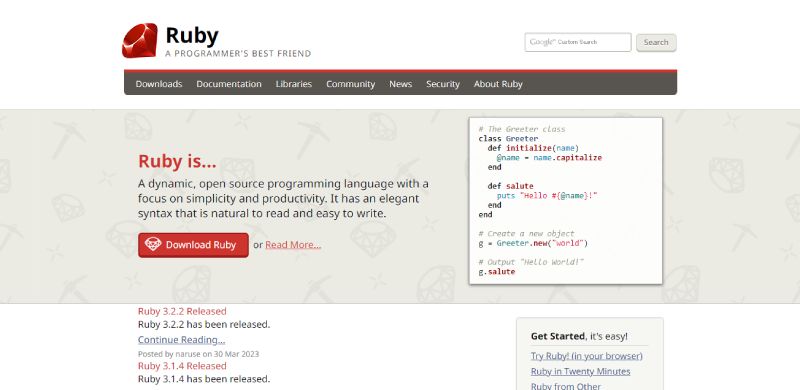
Ruby’s like that friend who’s effortless to hang out with, super approachable, and just gets you. The syntax is clean, minimal, and it’s all about making coding easier for you, so you can build stuff fast without getting bogged down.
Best Features:
- Human-friendly syntax
- Strong focus on simplicity
- Vibrant community
What we like about it: It’s Ruby on Rails—this framework turns web development into a smooth ride. It’s the kind of tool that makes you want to sit down and whip up a web app just for fun.
JavaScript

JavaScript is the life of the online party, everywhere on the web. But it’s not just for creating nifty animations or drop-down menus—nowadays, with Node.js, it’s server-side, too.
Best Features:
- Runs everywhere (seriously, everywhere)
- Asynchronous by nature
- Massive ecosystem
What we like about it: JavaScript’s versatility. There’s something neat about using the same language for both the front end and back end.
Java

Java’s like that reliable, well-organized pal who’s always got their life together. It’s got this whole enterprise vibe but can also kick back with smaller projects. And Java’s portability? Sweet.
Best Features:
- Cross-platform compatibility
- In-depth libraries
- Strong memory management
What we like about it: The whole “write once, run anywhere” motto. Super handy for consistent behavior across different environments.
Go

Need some speed? Go’s your go-to. Born at Google, this language cuts through complexity like a hot knife through butter, makes concurrent tasks a no-sweat situation.
Best Features:
- Super-fast execution
- Concurrency support
- Static typing with a dynamic feel
What we like about it: Its ability to multitask without flinching—that’s concurrency magic right there.
Swift
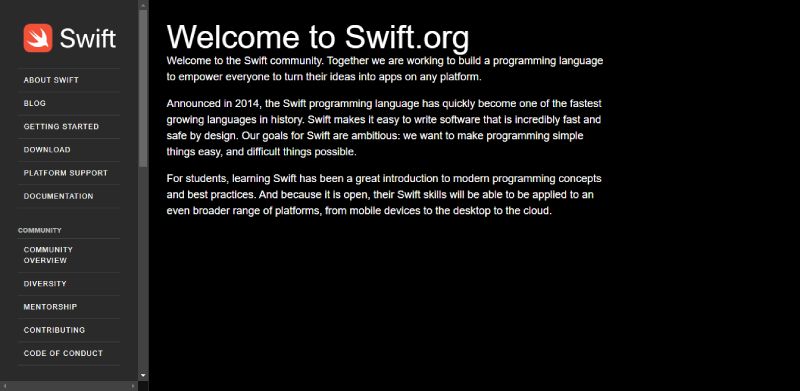
Swift is the rising star for anyone keen on Apple’s realm. It’s snappy, it’s intuitive, and dang, does it make iOS apps shine.
Best Features:
- Modern syntax
- Safety features
- Great performance
What we like about it: That sweet spot between power and simplicity Swift nails for Apple’s ecosystem.
Kotlin
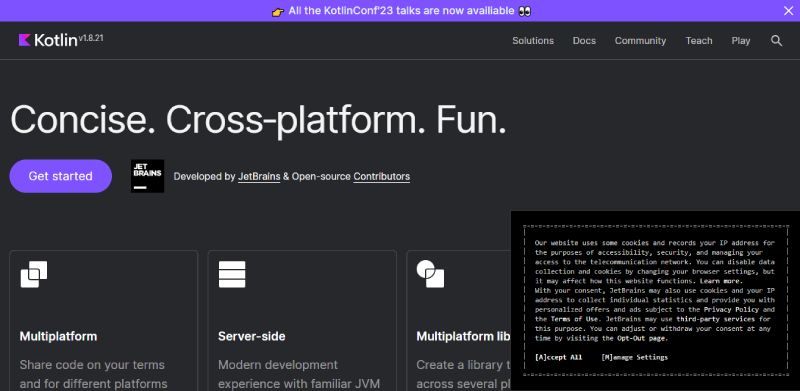
For Android developers looking to up their game, Kotlin’s a godsend. A relative newbie, sure, but it’s made a splash with its pragmatic approach—everything you like about Java, minus the headaches.
Best Features:
- Null safety
- Clean, concise code
- Interoperable with Java
What we like about it: How it streamlines Android app development. Turbos-charge your code without sacrificing readability.
R

Data, meet your best friend R. For stats and graphs that need to look as smart as they are, R’s your wingman. Amidst Python alternatives, it’s the niche superstar for anyone knee-deep in data.
Best Features:
- Statistical analysis powerhouse
- Data visualization tools
- Active community
What we like about it: Its domain-specific edge—R’s tooled up specifically for data work, and it shows.
Scala
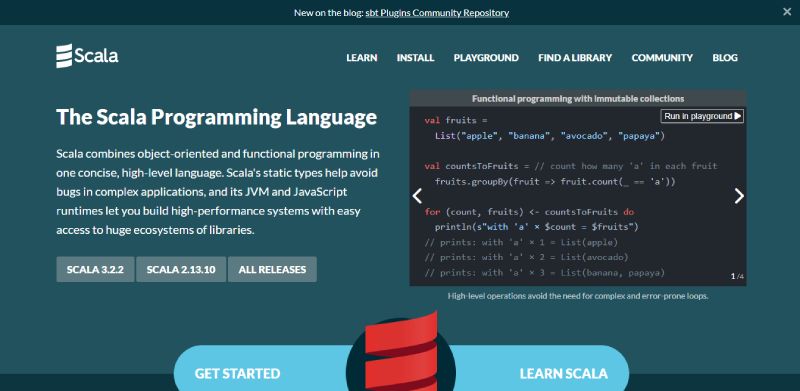
Imagine a language that blends functional programming with an object-oriented approach. Scala’s that hybrid—a brainiac that scales from small scripts to massive systems without breaking a sweat.
Best Features:
- Combines OO and functional paradigms
- Scalable language design
- JVM interoperability
What we like about it: Its knack for handling big, complex applications while remaining agile and expressive.
C#
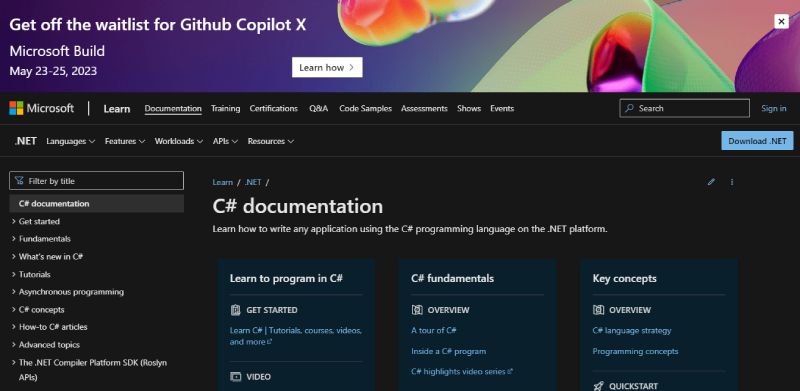
C# is like the multi-tool in the coding toolkit. Got a game you want to build? Need a desktop app? Working on a web project? C# has got the chops, with a standing ovation for its role in game development with Unity.
Best Features:
- Versatile across platforms
- Rich set of libraries
- Strong typing
What we like about it: The Unity connection—that’s a big win for game devs right there.
PHP
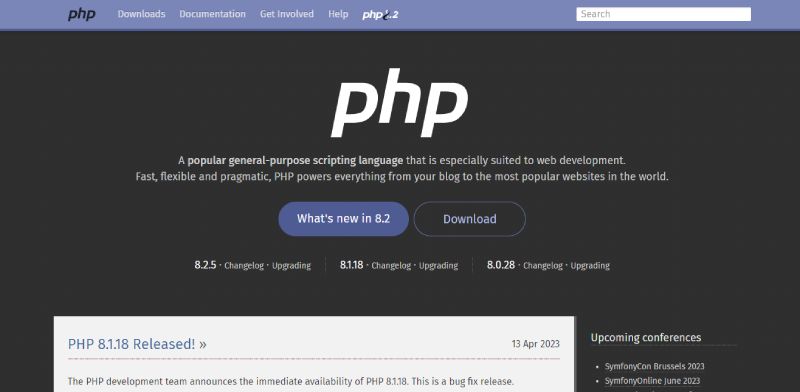
PHP’s been around the block, powering a huge chunk of the web. While it might seem a bit old-school, it’s still kicking with a dedicated user base and tons of resources.
Best Features:
- Built for the web
- Large community
- Wide array of powerful frameworks
What we like about it: Its ease in whipping up web pages. Still the bread and butter for many web developers.
Perl

Perl’s got that “jack-of-all-trades” vibe, merging the best bits from various languages into one eclectic scripter’s dream. Text processing? It’s a classic go-to, with a community that’s resilient as ever.
Best Features:
- Text processing
- CPAN repository
- TMTOWTDI philosophy (There’s More Than One Way To Do It)
What we like about it: Its flexibility. If you’re into scripting with a creative twist, Perl’s your jam.
Elixir
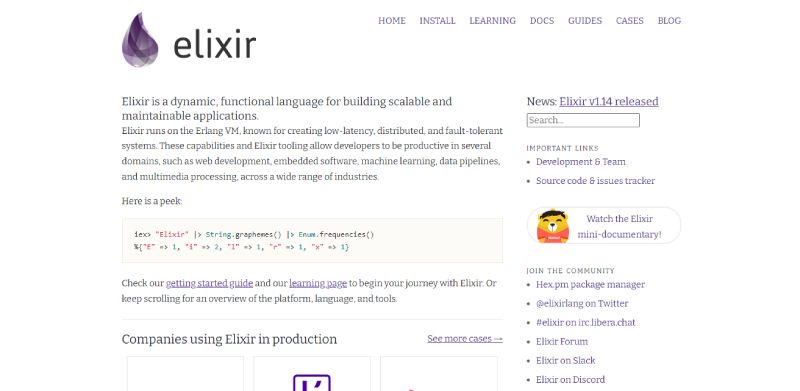
Brewed for concurrency and fault tolerance, Elixir’s a rising star born from Erlang’s fiery soul. Modern syntax meets mature infrastructure—it’s a match made for real-time apps.
Best Features:
- Highly scalable
- Concurrency-ready
- Clean, maintainable code
What we like about it: Its ability to keep things running smoothly even when the going gets tough—resilience is key.
Rust
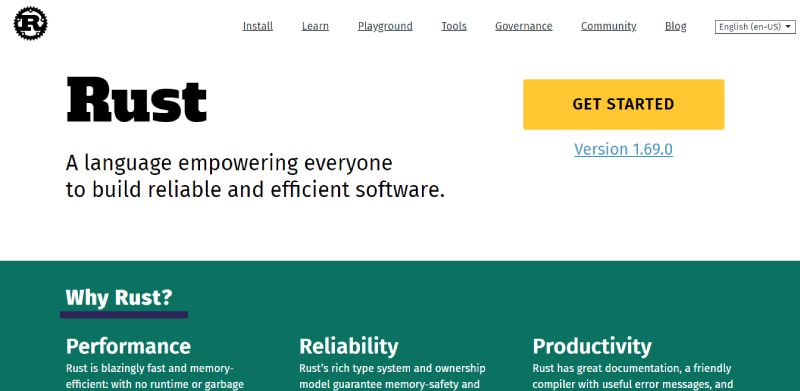
Rust gets you high performance without skimping on safety—a rare combo. It’s the new kid on the block making waves by preventing those annoying software bugs at compile time.
Best Features:
- Memory safety
- Speed
- Concurrency without the data races
What we like about it: The borrow checker—Rust has your back, catching bugs before they bite.
Lua
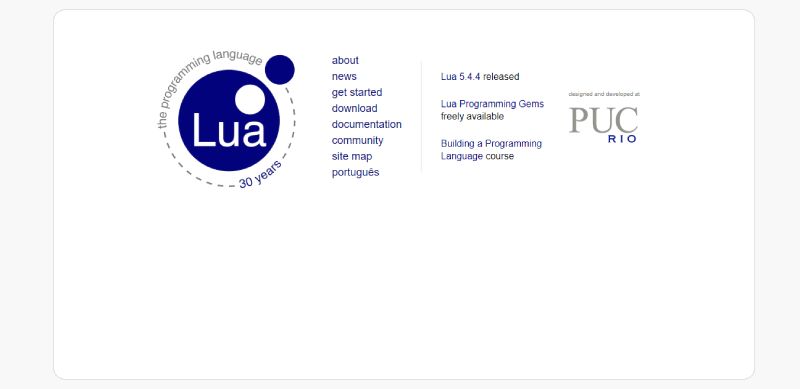
Lua’s like a secret ninja ally tucked into other tech. Lightweight, embeddable, and with a syntax that’s a cinch. It’s the pick for game devs and anyone who needs to script on the fly within a larger application.
Best Features:
- Embeddable in applications
- Speedy execution
- Easy to learn
What we like about it: Its ability to sneak into big applications and power up customization—a developer’s secret weapon.
Haskell
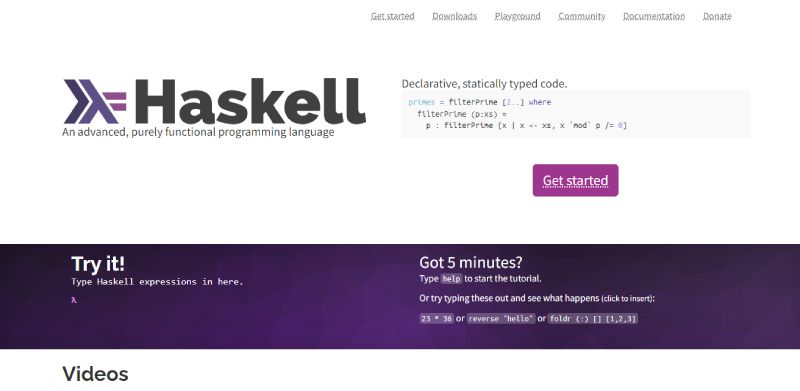
Haskell’s the thinking coder’s delight. A pure functional language that’s all about elegance and high-level abstraction. Think clean, mathematical, and a compiler that’s strict but fair.
Best Features:
- Purely functional
- Strong static typing
- Emphasis on code correctness
What we like about it: The intellectual challenge. Haskell doesn’t just make you a better programmer; it makes you think.
Clojure
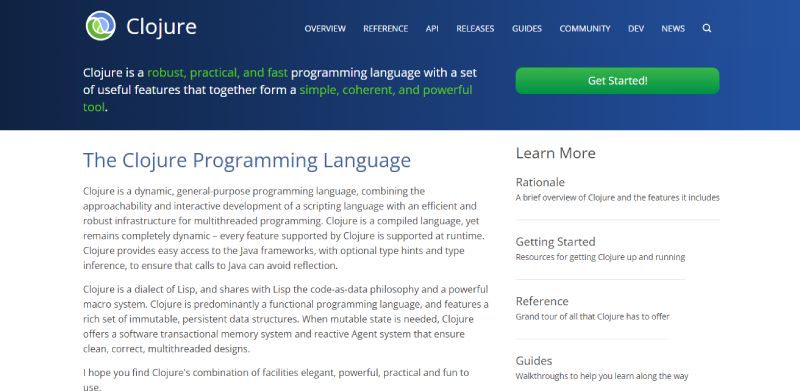
Clojure’s the cool cousin of Lisp, decked out for today’s world. When you’ve got some serious state to manage within applications, Clojure’s immutable data structures and functional mojo come to play.
Best Features:
- Functional programming
- Immutability
- Great Java interop
What we like about it: The focus on immutability and simplicity—it’s a functional programming purist’s dream.
Dart
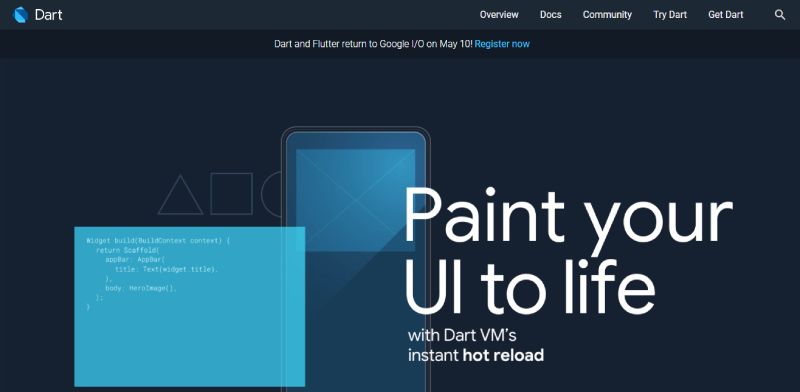
Flutter boosted Dart into the mobile app devs’ limelight. It’s all about smooth UIs for both Android and iOS from a single codebase. Quick, efficient, and rising in the ranks.
Best Features:
- Productive development
- Rich standard library
- Great for mobile and web apps
What we like about it: The harmonious marriage with Flutter—creating beautiful, natively compiled applications across platforms.
TypeScript
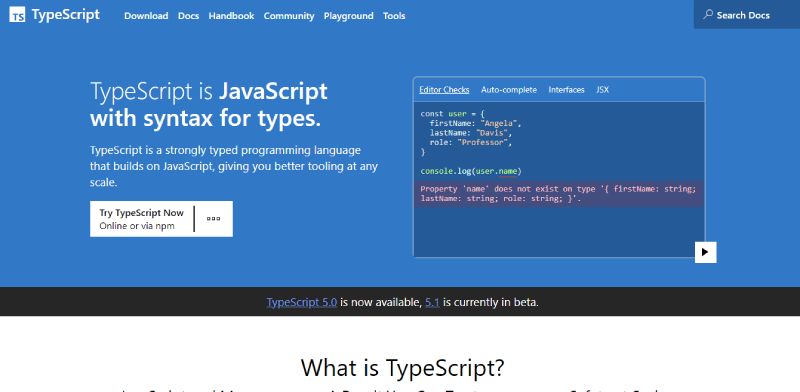
Take JavaScript, add some discipline, and you’ve got TypeScript—a superset that’s tightening up the web dev process with static types and powerful tools for large codebases.
Best Features:
- Optional static typing
- Improved code structuring
- Strong tooling support
What we like about it: The enhanced readability and maintainability, especially for large-scale JS projects.
Groovy
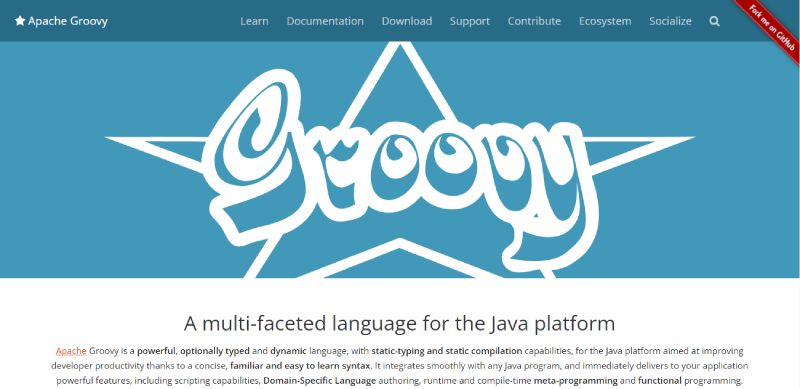
Groovy’s as chill as it sounds—a scripting language that plays nice with Java but with a dynamic twist. Great for writing concise, legible code that still swings with the Java ecosystem.
Best Features:
- Java interoperability
- Simplified syntax
- Scripting capabilities
What we like about it: Its user-friendliness. Groovy makes Java more approachable and adds a splash of fun to boot.
Julia
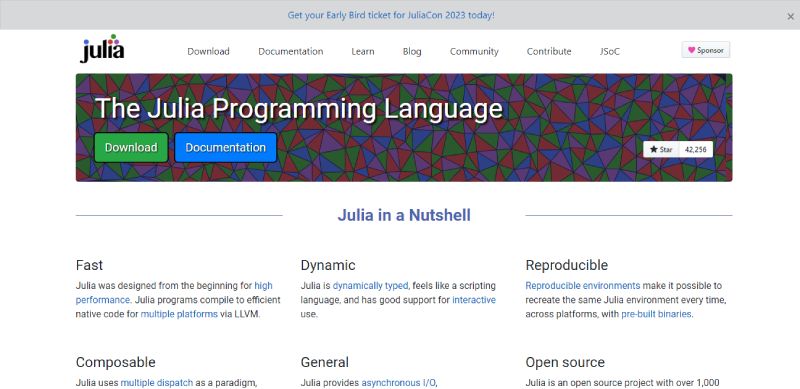
Data scientists take note; Julia is on a mission to bridge the gap between ease and power. Designed for high performance, with the syntax ease of Python or R, Julia’s making numerical computing cool again.
Best Features:
- Fast execution
- Designed for data science
- Easy to learn
What we like about it: Its speed, hands down. Julia brings that quick-calculating finesse to data-heavy tasks.
Crystal

Crystal’s got that Ruby-like sparkle with the speed of C. A compile-time buddy that feels dynamic even though it’s statically typed. It makes writing fast applications as enjoyable as Ruby makes writing code.
Best Features:
- Ruby-like syntax
- Statically typed but feels dynamic
- Fast as C, slick as Ruby
What we like about it: The blend of expressiveness and efficiency—you write less but do more, at pace.
FAQ on Python alternatives
What’s the main draw of Python alternatives?
Python’s cool, right? Fast to write, easy to read – a solid choice. But sometimes, you need more speed or something tailor-made for your specific gig. That’s where Python alternatives roll in.
Each brings their own flair to the table—think precision of C++ or concurrency prowess of Go. Varied and vibrant, these options flex to fit your project’s unique contours.
Are there any Python alternatives for web development?
Oh, for sure. If web design’s your playground, Ruby on Rails might just be your new best friend. Snappy development times, readable code. Or there’s PHP, an old faithful that’s powered many corners of the web.
Different tools, same goal: building stellar web apps that shine online.
Can I use Python alternatives for data analysis?
Absolutely! If you’re crunching numbers, check out R. It’s a data wizard, turning stats into insights faster than you can say “p-value”.
For those with a soft spot for data visualization and hardcore statistical analysis, R comes to the party with tools and libraries that’ll make your datasets sing.
Do Python alternatives offer better performance?
In some cases, yeah. Take C++, it’s like Python on a double espresso. It pumps out high-performance code that Python might struggle to match, especially when you’re talking big, compute-heavy apps.
If it’s performance you’re after, some alternatives are designed to deliver it in truckloads.
How steep is the learning curve for Python alternatives?
Varies big time. Java‘s got a rep for being verbose but structured, while Ruby‘s as friendly as a chat at your local café.
But don’t be fooled by the initial smooth talks—each language has its depths, ready to pull you into more complex concepts as you dive deeper.
Which Python alternative is best for mobile app development?
For those who dream in app features, Swift is a game-changer for iOS feel and Kotlin‘s got Android’s back.
Both offer cleaner syntax compared to Python, which, let’s be real, isn’t the go-to for mobile magic. These two? Tailor-made for the job.
Is switching to a Python alternative worth it?
Depends on where you’re at. If Python’s like that snug old sneaker but kinda wears down on the runs, upgrading to a fresh pair makes sense.
Each alternative’s got its playground—speed, system-level, or niche tasks. Worth it? If it ticks your boxes, heck yeah.
Are there Python alternatives with similar syntax?
If you’re all about that Python readability, Ruby might just have you smiling. It’s like Python’s chill cousin – different, sure, but there’s a family resemblance.
And then there’s Perl, with its more eclectic style, once likened to Python’s syntax, but it’s more… let’s say, free-spirited.
What about community support for Python alternatives?
Strong communities are out there. Take Java – it’s like a bustling metropolis of support and tools. JavaScript? More like a giant party, with Node.js turning the volume up.
The kicker? Active communities mean answers, plugins, libraries – the works.
Do Python alternatives integrate well with other technologies?
Yep, most do. Whether it’s JavaScript shuffling from front-end to server-side or Java locking in with enterprise systems, these languages know how to mingle.
Integration’s their secret sauce, hooking into various APIs, databases, and frameworks to make your tech stack as smooth as butter.
Ending thoughts
So we’ve journeyed through the realm of Python alternatives, right? Unpacked a treasure chest of languages, each with perks to make your project pop. It’s not about shelving Python, but hey, options—they’re like extra colors on a painter’s palette.
- Ruby on Rails, that’s your quick, slick web developer buddy.
- Go, does the hustle when you’re talking speed.
- Crafting mobile marvels? Swift and Kotlin are your ticket.
Each tool we’ve touched on, it’s your ladder to building something that’s not just great, but remarkable. Circuits, scripts, lines of code—they’re the bricks of your next digital masterpiece, and now you’ve got a whole new set of blueprints to play with.
So go ahead, pick the language that speaks to you, that feels right for the job at hand. You’re not just coding; you’re creating tomorrow one line at a time.
If you liked this article about Python alternatives, you should check out this article about Angular alternatives.
There are also similar articles discussing PHP alternatives, Ruby alternatives, Redux alternatives, and Express alternatives.
And let’s not forget about articles on Spring alternatives, Flask alternatives, TypeScript alternatives, and Laravel alternatives.
- Free Streaming Heaven: Top Apps Like Tubi - April 18, 2024
- Crafting the Perfect Pitch to Secure Investors for Your Mobile App - April 18, 2024
- 5 Ways to Incorporate AI Into Your Project Management Workflow - April 18, 2024





